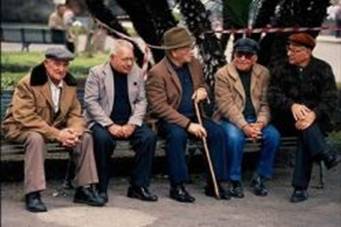|
|
Seniors Research How to Age Gracefully
Sheryl Ubelacker
January 31, 2005

Having seniors perform research is not unique, says Nancy Marlett, a professor in the university's community rehabilitation and disabilities studies program.
"What's really important is that this is the beginning of a process here where the research agenda itself is set by seniors," Marlett said. "It's about making sure they understand how to make science and research work for them."
The goal is to attract other groups across Canada to start up similar seniors-on-seniors research and create a network of projects and then pool results.
The Calgary project, developed in conjunction with the Kerby Centre for seniors, involves about 20 seniors trained by retired university professors to research the keys to happy and healthy aging.
And the focus they chose? Resilience, and the role it plays in growing old gracefully.
Anne Hartley, 75, said she joined the project out of curiosity.
"I sort of knew what made me resilient, but I needed to see if there was a common theme amongst the seniors or variances, and the only way to find that out was to do some research," said the Calgary resident, who married a Canadian soldier after the Second World War and immigrated to Ontario from England.
"My personal view is that whatever adversity I was handed, I had two choices: I dealt with it or I gave in. And giving in was not an option for me," said Hartley.
Finding a single definition for resilience was difficult, but the common thread among all the seniors' stories was that the trait came with their upbringing, she said.
"Their resilience was learned at their parents' knees and their early lifestyle, and they were able to draw on that when they needed to be resilient later."
Dr. Penny Jennett, a professor of community health sciences and the study's principal investigator, said healthy aging isn't necessarily tied just to medical wellness.
"We are finding that resilience seems to be tied to the kinds of relationships and support you have around you, the influence of your early upbringing, and perhaps even genetics."
"Resilience is one of those terms that says you can celebrate the struggles you've had because they've been part of your life, too."
The year-long study should be completed by the end of next month. Then the seniors will began analysing their data, which will find its way into academic papers and workbooks for other seniors.
|
|



